Mangoes: A Fruit for the Future
The mango is a fruit that needs no introduction. Known for its vibrant colors, sweet taste, and juicy pulp, the mango has won hearts worldwide. From refreshing summer drinks to decadent desserts, mangoes have become integral to various cuisines and cultures. This tropical delight satisfies our taste buds and offers numerous health benefits.
In this blog post, VINUT will explore the different facets of the mango – from its cultivation and varieties to its impact on popular culture and potential health considerations.
Overview of Mangoes
Mangoes are believed to have originated in India over 5,000 years ago, and since then, they have spread to other parts of South Asia, Southeast Asia, and eventually, the rest of the world. Today, mangoes are grown in many tropical and subtropical regions, with India, China, Thailand, and Mexico being some of the top producers.
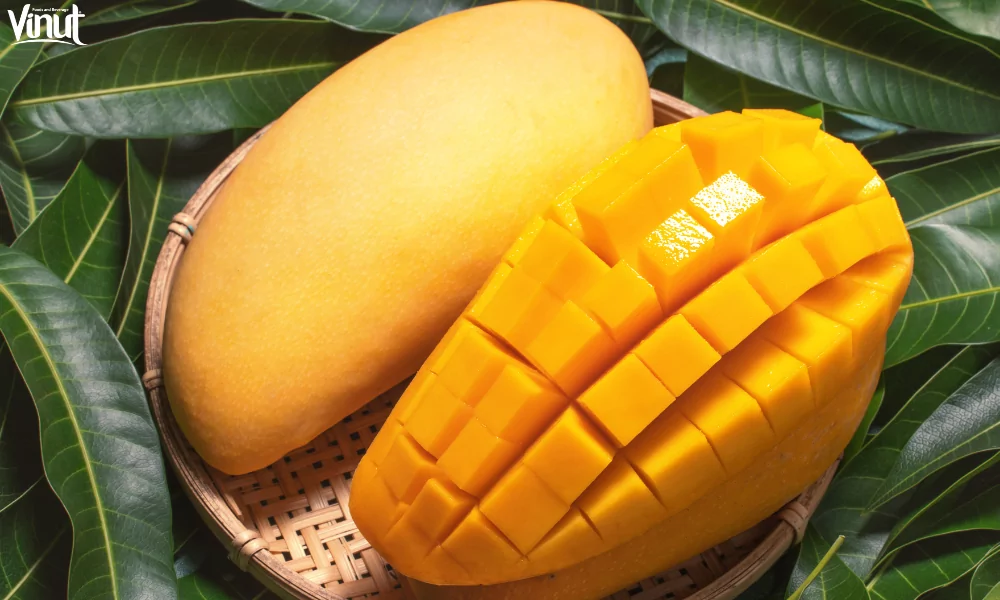
There are over 1,000 varieties of this fruit, each with its unique flavor, texture, and appearance. The most commonly known variety is the Alphonso mango, which is often referred to as the “King of Mangoes” due to its rich and creamy taste. Other popular varieties include the Tommy Atkins, Kent, and Hayden, which are widely grown in the United States. Each variety has its peak season, with some being available all year round, making mangoes a versatile fruit that can be enjoyed throughout the year.
Different Types of Mangoes
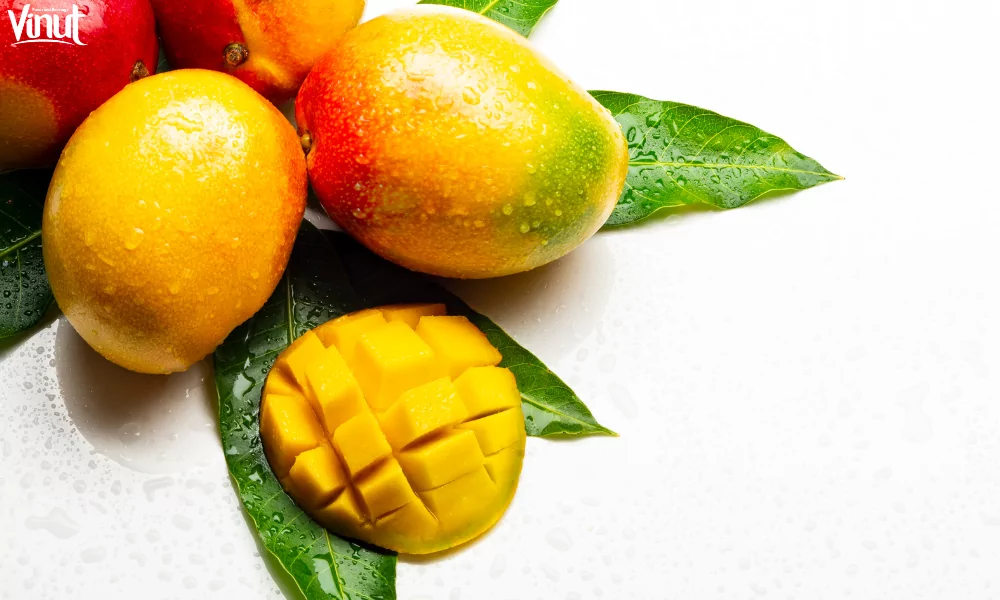
- Haden: This is one of the earliest varieties of this fruit to be cultivated in Florida, USA. It has a mild flavor and firm texture, making it ideal for salads and smoothies.
- Alphonso: Originating from India, this variety has a distinctive sweet and creamy taste, with a bright orange color. It is often used in desserts and drinks.
- Tommy Atkins: This variety is widely grown in Mexico, Brazil, and Ecuador. It has a firm texture and a unique combination of sweet and tart flavors, making it a great addition to salsas and chutneys.
- Kent: Grown in Florida, this mango has a rich, sweet flavor with a smooth and juicy texture. It is often used in fruit salads and juices.
Cultivating Mangoes
Mango trees can grow up to 100 feet tall, with large, green leaves and small white flowers. However, to ensure a good crop yield, the trees are usually pruned to maintain a shorter height for easier harvesting. The ideal climate for mango cultivation is warm and humid, with plenty of sunlight.
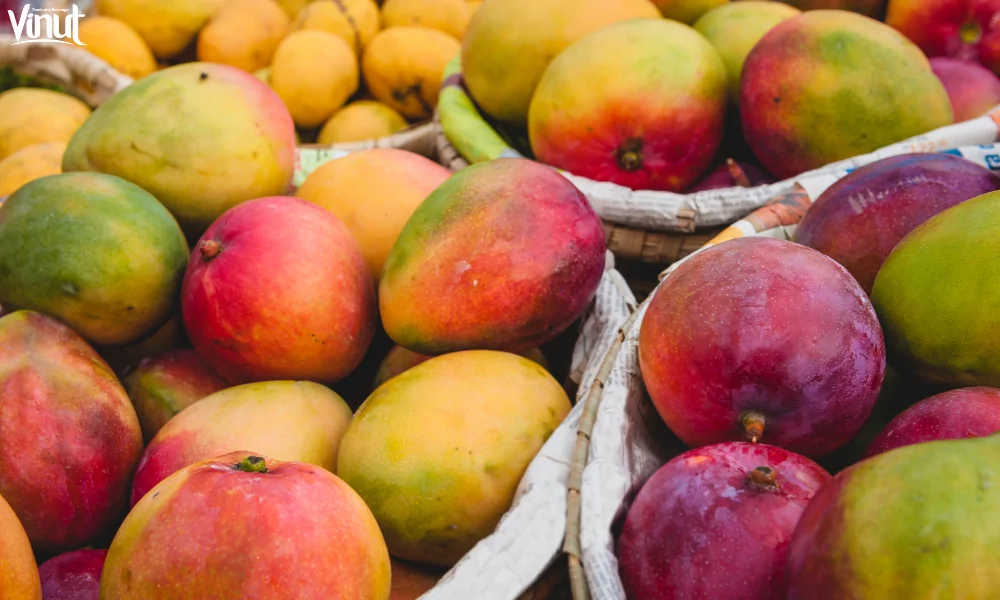
The process of growing mangoes starts with planting the seeds or grafting a branch of a mature tree onto a young seedling. Mangoes take about three to six years to bear fruit, but some varieties can take up to ten years. Once the fruit appears on the tree, it takes about four months for them to ripen. During this time, the color of the mango changes from green to various shades of yellow, orange, or red, depending on the variety.
Nutritional Benefits of Mangoes
Apart from being delicious, mangoes also offer numerous health benefits. They are a rich source of vitamins A and C, which help boost immunity and promote healthy skin and eyesight. Mangoes also contain fiber, which aids digestion and promotes a healthy gut. They are also high in antioxidants, which help fight against free radicals and reduce the risk of chronic diseases such as cancer and heart disease.
Additionally, mangoes contain several minerals important for maintaining good health, such as potassium, magnesium, and folate. These minerals aid in regulating blood pressure, promoting bone health, and supporting brain function.
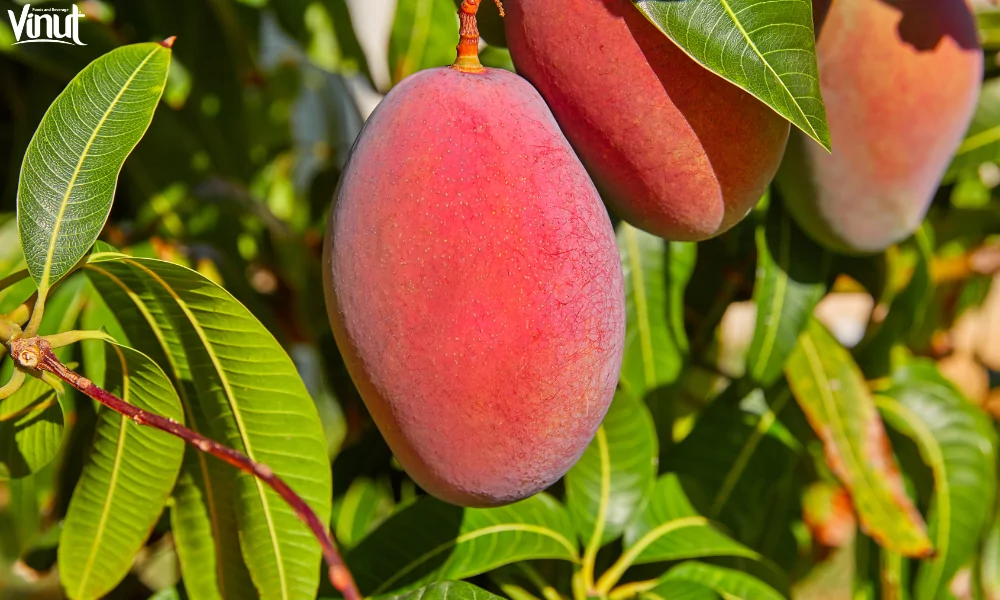
Health Benefits of Mangoes
- Rich in Vitamin A: One cup of sliced mango provides about 35% of the daily recommended intake of vitamin A, which plays a crucial role in maintaining healthy skin and eyesight.
- High in fiber: Just one cup of mango contains around 3 grams of fiber, aiding digestion and promoting a healthy gut microbiome.
- Antioxidant-packed: They are rich in polyphenols, carotenoids, and other antioxidants, helping to reduce oxidative stress and lower the risk of chronic diseases.
- Source of potassium: They contain potassium, an essential mineral that helps regulate blood pressure and maintain heart health.
- Boosts immunity: The high levels of vitamin C present in this fruit helps strengthen the immune system and fight against illnesses.
Health Considerations and Potential Allergies
While they boast numerous health benefits, it is important to note that they may not be suitable for everyone. Some people may have allergic reactions to mangoes, especially if they are allergic to other fruits such as cashews or pistachios, which belong to the same family. The skin and sap of the mango contain a chemical called urushiol, which can cause contact dermatitis in some individuals. In such cases, it is best to avoid consuming mangoes and consult a doctor if symptoms persist.
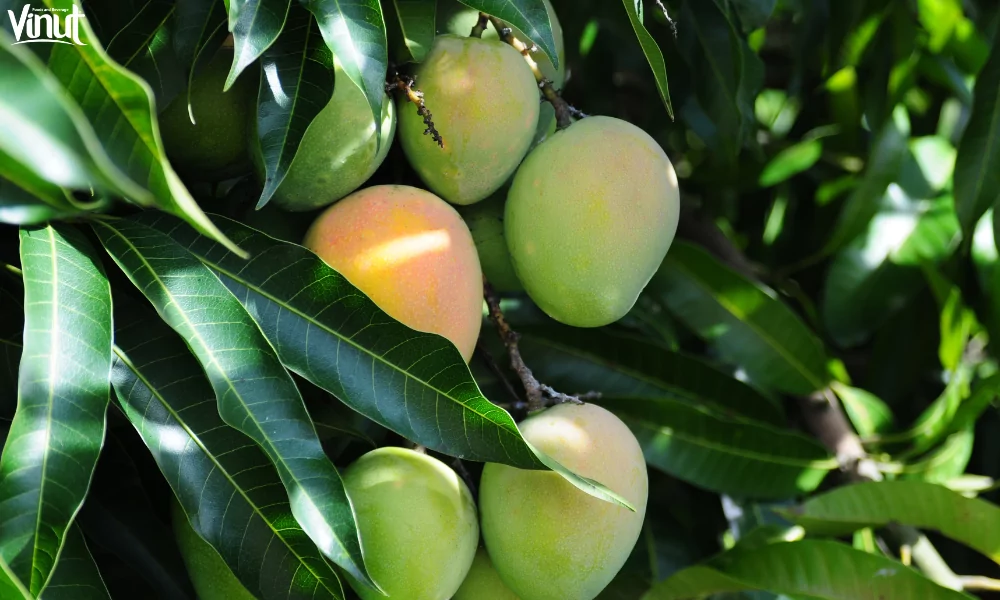
Additionally, mangoes are high in sugar and should be consumed in moderation for those with diabetes or trying to control their blood sugar levels. People with kidney problems should also limit their intake of mangoes as they contain potassium, which can be harmful in large amounts.
Mangoes: A Fruit for the Future
As the world’s population continues to grow, food security becomes a pressing issue. They have the potential to play a significant role in providing nourishment and income to people in developing countries. Studies are being conducted on ways to increase crop yield, reduce post-harvest losses, and develop more resistant varieties of this one to combat climate change.
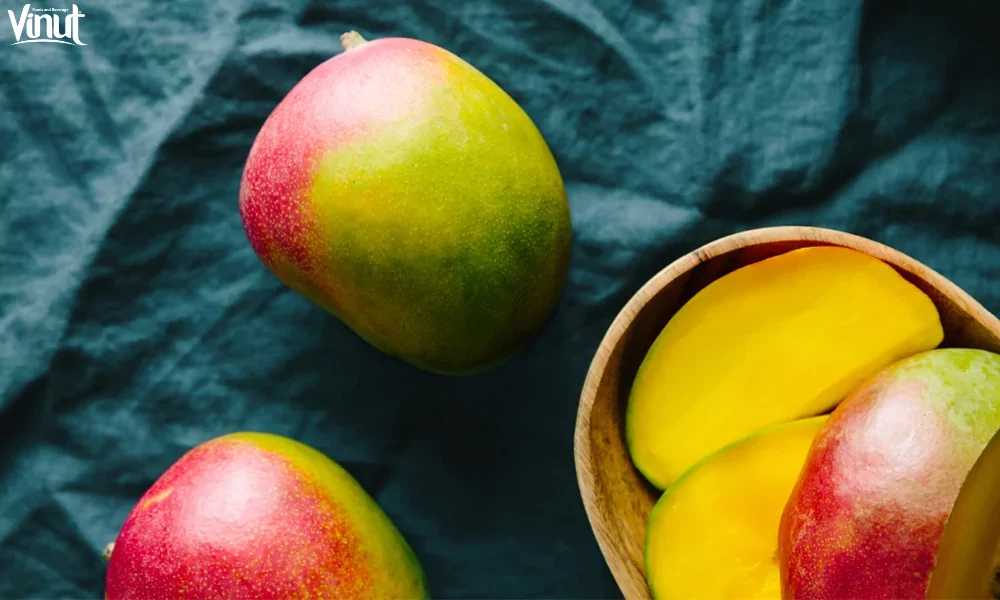
Furthermore, this fruit has been identified as a fruit with significant potential for global trade, especially in developing countries. With proper infrastructure and support from the government, mango production can become a major contributor to the economy, providing jobs and income to local communities.
Conclusion
Mangoes are a tropical delight that has captured the hearts and taste buds of people all over the world. From its diverse varieties and cultivation methods to its numerous health benefits and cultural significance, they are more than just fruit – they represent love, prosperity, and hope for the future. As we continue to explore this delicious and versatile fruit, let us appreciate and celebrate the journey of the mango from the farm to our plates.


 Juice Concentrate
Juice Concentrate Vegetable juice
Vegetable juice Juice Milk
Juice Milk Stand Up Pouches
Stand Up Pouches









